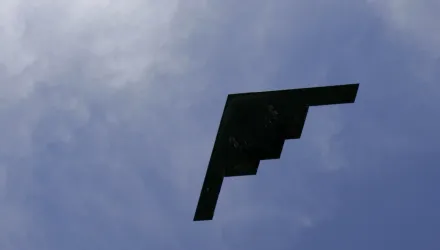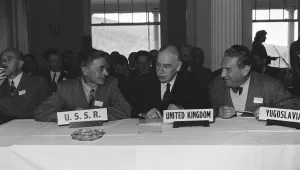International Security is America's leading peer-reviewed journal of security affairs.
Abstract
Nearly forty years ago, President John F. Kennedy and his advisers voiced growing concern over China’s nascent nuclear program and the threat it posed to U.S. national security. Since then, questions have lingered over precisely what steps the administration had considered to deal with this threat. Based on an exhaustive study of newly declassified documents, William Burr and Jeffrey Richelson of the National Security Archive report that the Kennedy administration embarked on a huge intelligence effort that included U-2 flights, satellite reconnaissance, and even talks with the Soviet Union on joint action. By the time of China's first nuclear test on October 16, 1964, however, Kennedy's successor, Lyndon Johnson, and his advisers had decided against direct confrontation with China, having concluded that not only was a nuclear China a threat the United States could live with, but that a confrontation with Beijing on the eve of a presidential election might prove politically unwise. In their conclusion, Burr and Richelson ponder the implications of their analysis for the current debate in the United States over China’s nuclear program.
Burr, William and Jeffrey T. Richelson. “Whether to "Strangle the Baby in the Cradle": The United States and the Chinese Nuclear Program, 1960-64.” Winter 2000/01



